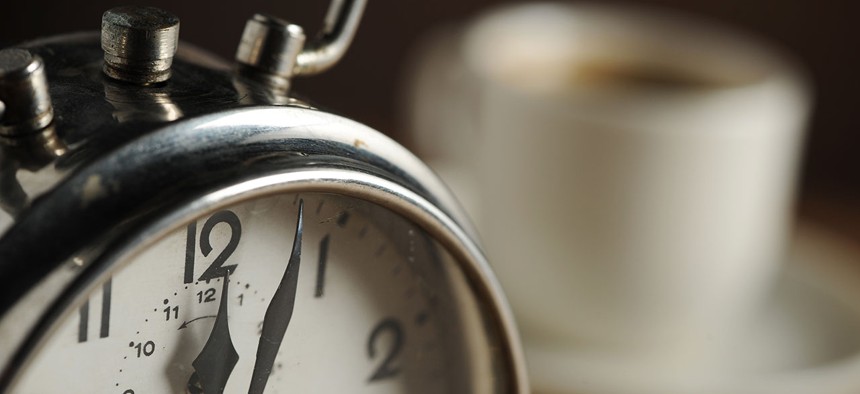
Stokkete/Shutterstock.com
How Coffee Can Screw Up Your Sleep Cycle
A new study reveals how caffeine impacts circadian rhythms—but could actually help certain people sleep better.
You’ve surely heard that it’s not a good idea to chug a mug of coffee right before putting your pajamas on, or to watch Hulu on your cell phone as you drift off to sleep. But the precise mechanisms by which caffeine and bright light—partners in sleep-defying crime—disrupt circadian rhythms remained a little murky.
A new study, published today in Science Translational Medicine, investigated the effect of caffeine on these cycles. Over the course of 49 days, researchers compared the effects of caffeine to the impact of bright light (such as from computers or cellphones), which is already known to make it harder for us toproduce melatonin, disrupting our rhythms and resulting in poorer sleep.
Study participants gulped down a caffeine pill—equivalent to the content of a double espresso—three hours before their habitual bedtime. Three hours of exposure to bright light began at their normal conk-out time.
Researchers observed participants in four states: caffeinated in dim light, caffeinated in bright light, and un-caffeinated in both dim and bright light. Caffeine threw circadian cycles out of whack even in those subjects who weren’t exposed to bright light. In these participants, the phase shift was off by 40 minutes. The combination of bright light and caffeine yielded an average delay of 105 minutes, compared to a dimly-lit, caffeine-free placebo.
Imbibing a cup of coffee before bedtime could throw off your sleep cycle. But the researchers suspect that it’s not necessarily a bad thing in some cases. For instance, a strategic caffeine jolt could help you reacclimatize to your normal rhythm following a disruption—from, say, jet lag. The authors write:
Properly timed caffeine use may also be of benefit with respect to shifting circadian timing, potentially assisting with circadian adaptation to large phase delays required when flying across many time zones westward, as well as sustaining wakefulness until bedtime in the new time zone.
The researchers also wondered whether deliberately tinkering with your body’s timekeeping mechanisms could help mitigate sleep-cycle disorders, which can cost employers thousands of dollars a year in lost productivity—and make for groggy, cranky workers who struggle to function in jobs that require a schedule their bodies have trouble maintaining. Perhaps it could even have implications for shift workers, whose hours rarely conform to the 9-to-5 grind.
(Image via Stokkete/Shutterstock.com)
NEXT STORY: Debate Divides Candidates on National Security






